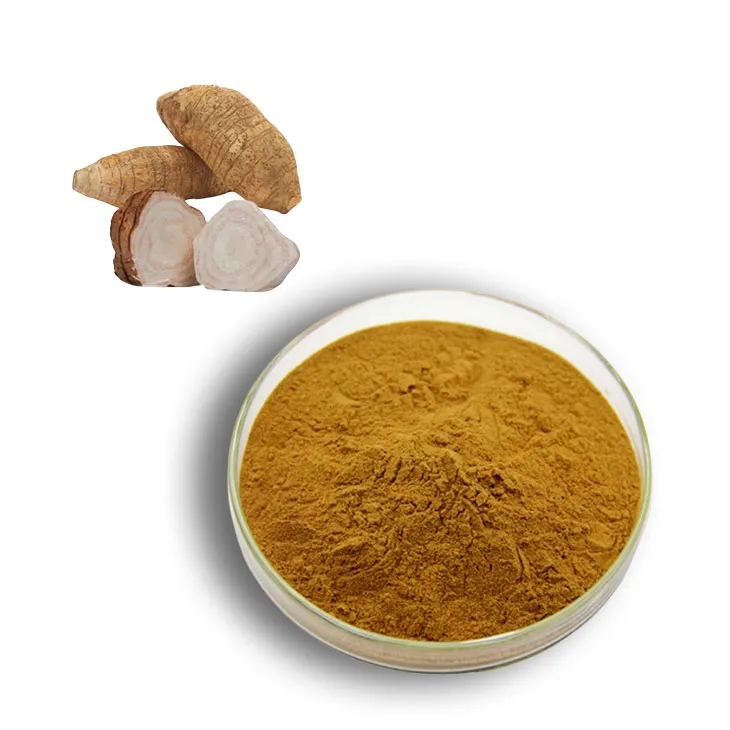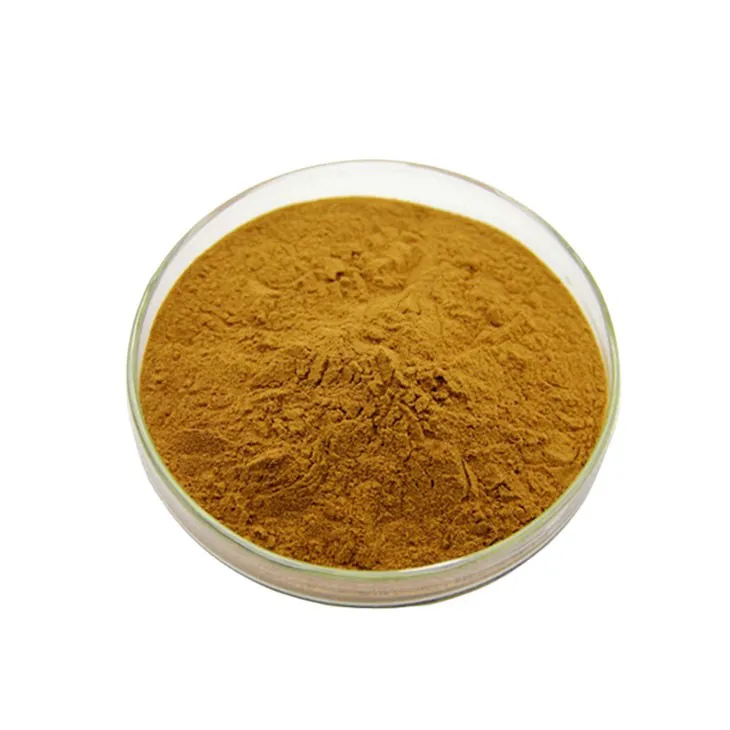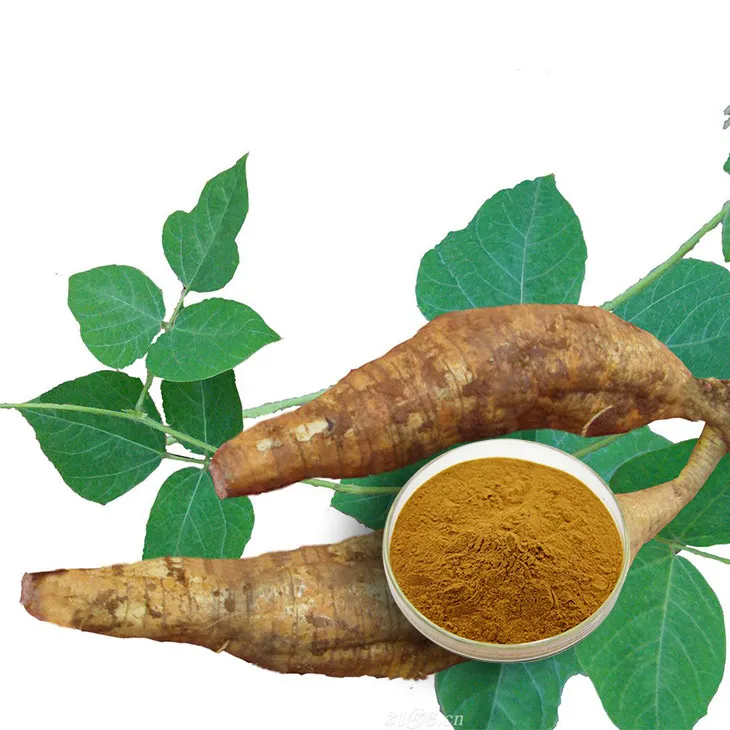- 0086-571-85302990
- sales@greenskybio.com
Is Pueraria lobata extract beneficial for diabetes? Are these all safe and applicable for diabetic patients?
2024-11-12

1. Introduction
Diabetes mellitus is a chronic metabolic disorder that has reached epidemic proportions globally. Management of diabetes often involves lifestyle modifications, medications, and sometimes, the use of natural supplements. Pueraria lobata, also known as kudzu, has been used in traditional medicine for various health conditions. In recent years, there has been growing interest in exploring whether Pueraria Lobata Extract could play a role in diabetes management. This article aims to comprehensively examine the potential benefits of Pueraria Lobata Extract for diabetes and its safety and applicability for diabetic patients.

2. Potential Beneficial Effects on Diabetes
2.1 Blood Sugar Regulation
One of the key aspects in diabetes management is the regulation of blood glucose levels. Some studies suggest that Pueraria Lobata Extract may have an impact on blood sugar regulation. It is believed that certain compounds present in the extract may interfere with the absorption of carbohydrates in the gut. For example, flavonoids in Pueraria lobata extract might slow down the breakdown of complex carbohydrates into simple sugars, thereby reducing the sudden spike in blood glucose levels after a meal. Additionally, it could potentially enhance the uptake of glucose by cells, which would help in lowering the overall blood sugar concentration.
2.2 Insulin Sensitivity Improvement
Insulin resistance is a major underlying factor in type 2 diabetes. Improving insulin sensitivity can significantly improve glycemic control. There is evidence to suggest that Pueraria lobata extract may play a role in enhancing insulin sensitivity. The extract may act on the insulin signaling pathway within cells. It could potentially modulate the activity of proteins involved in insulin - receptor binding and subsequent intracellular signaling. This would allow cells to respond more effectively to insulin, enabling better uptake of glucose from the bloodstream. For instance, some components of the extract may stimulate the translocation of glucose transporters to the cell membrane, facilitating glucose entry into cells even in the presence of relatively low insulin levels.

3. Safety Aspects for Diabetic Patients
3.1 General Safety Considerations
When considering the use of Pueraria lobata extract by diabetic patients, general safety aspects need to be addressed. In general, when used in appropriate doses, Pueraria lobata has been considered relatively safe in traditional medicine use. However, it is important to note that individual responses can vary. Some people may experience mild side effects such as gastrointestinal discomfort, including nausea, vomiting, or diarrhea. These side effects are usually mild and may subside with discontinuation of the extract or adjustment of the dosage.
3.2 Consideration of Different Health Conditions
- Liver and Kidney Function: Diabetic patients with pre - existing liver or kidney problems need to be especially cautious. The metabolism and excretion of the extract's components may be affected in these patients. Since the liver is involved in the metabolism of many substances and the kidneys play a crucial role in excretion, impaired liver or kidney function could lead to the accumulation of potentially harmful substances from the Pueraria lobata extract. Therefore, it is advisable for such patients to consult a healthcare provider before using the extract.
- Cardiovascular Health: Some diabetic patients may also have underlying cardiovascular diseases. Although there is no conclusive evidence that Pueraria lobata extract has adverse effects on the cardiovascular system, it is still necessary to consider potential interactions. For example, if a patient is taking medications for blood pressure or heart conditions, the addition of Pueraria lobata extract could potentially interfere with the efficacy of these medications or cause unforeseen side effects.
3.3 Potential Drug Interactions
- Antidiabetic Medications: Diabetic patients are often on medications such as metformin, sulfonylureas, or insulin. There is a possibility of interactions between Pueraria lobata extract and these antidiabetic drugs. For example, if the extract also has a hypoglycemic effect, combining it with antidiabetic medications could lead to an excessive drop in blood sugar levels, which can be dangerous. Hypoglycemia can cause symptoms such as dizziness, weakness, sweating, and in severe cases, loss of consciousness.
- Other Medications: Besides antidiabetic drugs, diabetic patients may be taking other medications for co - existing conditions. For instance, some patients may be on medications for lipid control or anti - platelet therapy. The extract may interact with these medications as well. For example, it could potentially affect the metabolism of lipid - lowering drugs in the liver, altering their effectiveness. Or it could interact with anti - platelet drugs and increase the risk of bleeding.

4. Research Evidence
4.1 In - vitro Studies
Several in - vitro studies have been conducted to explore the mechanisms of action of Pueraria lobata extract on diabetes - related factors. These studies have focused on cell lines, such as pancreatic beta - cells and muscle cells. In pancreatic beta - cells, the extract has been shown to have potential protective effects against oxidative stress, which is often associated with impaired insulin secretion in diabetes. By reducing oxidative stress, the extract may help maintain the normal function of beta - cells and ensure proper insulin production. In muscle cells, in - vitro experiments have demonstrated that Pueraria lobata extract can enhance glucose uptake, similar to the effect of insulin. However, it should be noted that in - vitro studies have limitations, as they do not fully represent the complex physiological environment in the human body.
4.2 Animal Studies
Animal studies have provided more comprehensive insights into the potential benefits of Pueraria lobata extract for diabetes. In diabetic animal models, such as rats or mice made diabetic through chemical induction or genetic manipulation, the extract has been shown to improve glycemic control. For example, it has been observed that the extract can reduce fasting blood glucose levels and improve glucose tolerance in these animals. Moreover, some animal studies have also suggested that Pueraria lobata extract may have beneficial effects on lipid metabolism in diabetic animals, which is important as abnormal lipid metabolism is often associated with diabetes. However, like in - vitro studies, the results from animal studies cannot be directly extrapolated to humans due to differences in physiology between animals and humans.
4.3 Human Studies
Human studies on the effectiveness of Pueraria lobata extract for diabetes are relatively limited. Some small - scale clinical trials have been carried out, but the results are not entirely conclusive. In these trials, some participants showed a mild improvement in blood sugar control after taking Pueraria lobata extract, but the magnitude of the effect was not as significant as expected in some cases. One of the challenges in human studies is the variability in the composition of the Pueraria lobata extract used, as different extraction methods can result in extracts with different chemical profiles. Another factor is the heterogeneity of the study participants, including differences in age, gender, diabetes type, and baseline health status. Additionally, the duration of these trials was often relatively short, which may not be sufficient to fully assess the long - term effects of the extract on diabetes management.
5. Conclusion
In conclusion, while there is some evidence suggesting that Pueraria lobata extract may have potential beneficial effects on diabetes, such as blood sugar regulation and insulin sensitivity improvement, more research, especially well - designed human studies, is needed to firmly establish its efficacy. Regarding safety, although it is generally considered safe in normal circumstances, diabetic patients, especially those with other co - existing health conditions or taking multiple medications, need to be cautious. Potential side effects, individual variability in response, and possible drug interactions all need to be carefully considered. Therefore, it is highly recommended that diabetic patients consult their healthcare providers before using Pueraria lobata extract as a complementary approach to diabetes management.
FAQ:
Q1: How does Pueraria lobata extract regulate blood sugar?
Some studies suggest that Pueraria lobata extract may contain certain bioactive compounds. These compounds might influence key enzymes involved in glucose metabolism, such as inhibiting the activity of enzymes that break down carbohydrates into glucose too quickly, thereby helping to regulate blood sugar levels. However, more research is needed to fully understand the exact molecular mechanisms.
Q2: Can Pueraria lobata extract improve insulin sensitivity?
There is evidence indicating that Pueraria lobata extract could potentially improve insulin sensitivity. It may act on cells in the body, making them more responsive to insulin. This means that cells can take up glucose more effectively when insulin is present. But again, the full extent of this effect and how it occurs precisely still requires further investigation.
Q3: Are there any side effects of Pueraria lobata extract for diabetic patients?
While Pueraria lobata extract is generally considered to have potential health benefits, it may also cause some side effects in certain individuals. Some people might experience digestive issues like stomach discomfort or diarrhea. In addition, there could be allergic reactions in sensitive individuals. Diabetic patients should also be cautious as it may interact with other medications they are taking.
Q4: How should diabetic patients use Pueraria lobata extract?
Before using Pueraria lobata extract, diabetic patients should consult their healthcare providers. The dosage and form of use need to be carefully determined. If it is determined to be safe for a particular patient, it should be used in accordance with the recommended guidelines. It should not be used as a substitute for standard diabetes medications without medical advice.
Q5: Can Pueraria lobata extract be used in combination with diabetes medications?
There is a risk of interactions when using Pueraria lobata extract with diabetes medications. Some compounds in the extract may interfere with the effectiveness of medications or cause unexpected side effects. Therefore, it is crucial that diabetic patients inform their doctors if they plan to use Pueraria lobata extract while on diabetes medications, so that the doctor can assess the potential risks and benefits.
Related literature
- The Effects of Pueraria lobata on Glucose Metabolism: A Review"
- "Pueraria lobata Extract and Diabetes: Potential Benefits and Risks"
- "Insulin - Sensitizing Effects of Pueraria lobata in Diabetic Models"
- ▶ Hesperidin
- ▶ citrus bioflavonoids
- ▶ plant extract
- ▶ lycopene
- ▶ Diosmin
- ▶ Grape seed extract
- ▶ Sea buckthorn Juice Powder
- ▶ Beetroot powder
- ▶ Hops Extract
- ▶ Artichoke Extract
- ▶ Reishi mushroom extract
- ▶ Astaxanthin
- ▶ Green Tea Extract
- ▶ Curcumin Extract
- ▶ Horse Chestnut Extract
- ▶ Other Problems
- ▶ Boswellia Serrata Extract
- ▶ Resveratrol Extract
- ▶ Marigold Extract
- ▶ Grape Leaf Extract
- ▶ blog3
-
High purity olive leaf extract
2024-11-12
-
Lavender oil extraction method
2024-11-12
-
100% organic virgin sea buckthorn fruit oil
2024-11-12
-
Lotus leaf extract powder factory in China
2024-11-12
-
China aged garlic extract supplier
2024-11-12
-
Deer antler extract powder manufacturer
2024-11-12
-
Saw palmetto extract vs whole herb
2024-11-12
-
Baicalin
2024-11-12
-
Hawthorn powder
2024-11-12
-
Centella Asiatica Extract
2024-11-12
-
Grape Leaf Extract
2024-11-12
-
Sophora Flavescens Root Extract
2024-11-12
-
Lavender Extract
2024-11-12
-
Black Pepper Extract
2024-11-12
-
Tongkat Ali Extract
2024-11-12
-
Curcuma Longa Extract
2024-11-12
-
Cassia Seed Extract
2024-11-12





















